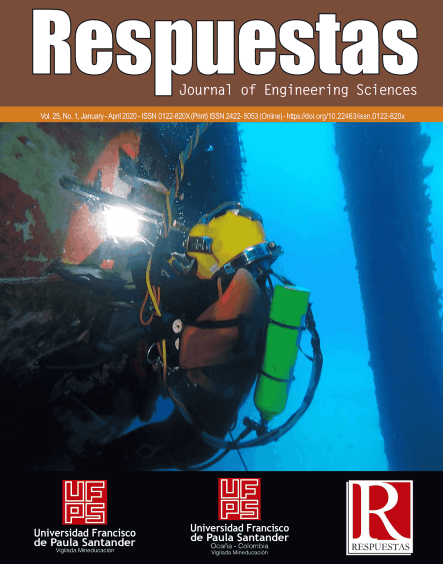Storydoing in the emotions of young university students during the process of learning calculus in engineering
Cuentos sobre las emociones de jóvenes universitarios durante el proceso de aprendizaje del cálculo en ingeniería
Main Article Content
The study of emotions using storydoing, constituted as the main factor in the learning of calculus in engineering, constitutes the main objective of the research, executed under the qualitative approach and the phenomenological method in order to deepen in the answers expressed by the adolescents of an educational institution. The article, based on a quantitative study, analyzes how the process of learning calculus takes place in the emotional, thought and feeling responses from the perspective of the students, who are directly benefited or affected by this situation. The sample consists of 111 university students from the first to the fourth semester. Emerging conceptual categories were friendship, role, learning innovation, emotion, feeling, environment, family support. Emerging paradigms were synchronic behaviour, inter-agent epistemology, self-organizing dynamics, abstract symbolic representation
Downloads
Article Details
T. Afifi, D. Granger, A. Joseph, A. Denes and D. Aldeis, “The influence of divorce and parent’s communication skills on adolescents and young adult´s stress reactivity and recovery”, Communication Research, vol. 42 no. 7, pp. 1009-1042, 2015.
M. Díaz-Salazar and M. Martínez-Díaz, “Orientación e Intervención Familiar” España: Universidad de Granada, 2018.
S. Braithwaite, R. Doxey, K. Dowdle and F. Fincham, “The unique influences of parental divorce and parental conflict on emerging adults in romantic relationships”, Journal of Adult Development, vol. 23, no. 4, pp. 214-225, 2016.
A. Ortega, M. Vergel and A. Martinez, “Validity of microrubri, instrument to measure the development of competences in mathematics”, Journal of Physics: Conference Series, vol. 1160 no. 125, 2019.
R. Pagano, “Estadística para ciencias del comportamiento” (México: Mc-Graw-Hill), 2001.
L. Gutiérrez, “Paradigmas cuantitativo y cualitativo en la investigación socio-educativa: proyección y reflexiones” Paradigma, vol. 14, no. 2, pp. 7-25, 2017.
J. Nieto, J. Rojas and M. Vergel-Ortega, “Impacto de la estrategia pedagógica basada en el aprendizaje creativo para estudiantes de ingeniería”, (Bogotá: ECOE Ediciones), 2019.
Y. Duarte, J. Sánchez-Frank and C. Gómez, “El trabajo colaborativo en las competencias económicas y financieras en estudiantes del Instituto Agrícola Región del Catatumbo-Colombia”, Covalente, vol.1, no. 36, 2019.
H. Parra, J. Suarez and M. Vergel, “Curricular trends in the University Francisco de Paula Santander academic program offerings” Journal of Physics: Conference Series, vol. 1329, no. 5, 2019.
F. Loreto and I. Serrano, “Enfoques metodológicos en la investigación educativa: Método empírico, cualitativo y fenomenológico”, Enfoques, vol. 10, no.1, 2017.
M. Vergel, J. Urbina and J. Rojas, “Imaginarios de educación superior en la juventud sorda“, (Bogotá: ECOE Ediciones), 2019.
K. Gentsch, D. Grandjean and K. Scherer, “Appraisals generate specific configurations of facial muscle movements in a gambling task: evidence for the component process model of emotion”, PloS one, vol. 10 no. 8, 2015.
K. Scherer and J. Fontaine, “The semantic structure of emotion words across languages is consistent with componential appraisal models of emotion”, Cognition and Emotion, vol. 10, pp. 1-10, 2018.
V. Shuman, E. Clark-Polner, B. Meuleman, D. Sander and K. Scherer, “Emotion perception from a componential perspective”, Cognition and Emotion, vol. 31, no. 1, pp. 47-56, 2017.
L. Pilonieta, J. Martinez and M. Vergel, “Lineamientos de enseñanza a estudiantes con hipoacusia: Una acción que trasciende de la educación inclusiva” (Bogotá: ECOE Ediciones), 2019.
R. Duval, “L'obstacle du dedoublement des objets mathematiques”, Educational Studies in Mathematics, vol. 14 no. 389, 1983.
M. Guitart and M. Monreal, “Consideraciones educativas de la perspectiva ecológica de Urie Bronfenbrenner”, Contextos Educativos, vol. 7, no. 2, pp. 79-92, 2012.
R. Lluch, Y. Mulet and P. Zámara, “Alteraciones psíquicas y conductuales en escolares”, Revista Electrónica Marinello Vidaurreta, vol. 40, no. 6, 2015.
M. Friesen, L. Horwood, D. Fergusson and L. Woodward, “Exposure to parental separation in childhood and later parenting quality as an adult: evidence from a 30‐year longitudinal study”, Journal of Child Psychology and Psychiatry, vol. 58, no. 1, pp. 30-37, 2017.
J. Palacios, “Trabajando con familias, investigando sobre familias”, Apuntes de Psicología, vol. 34, no. 2-3, 83-88, 2017.







